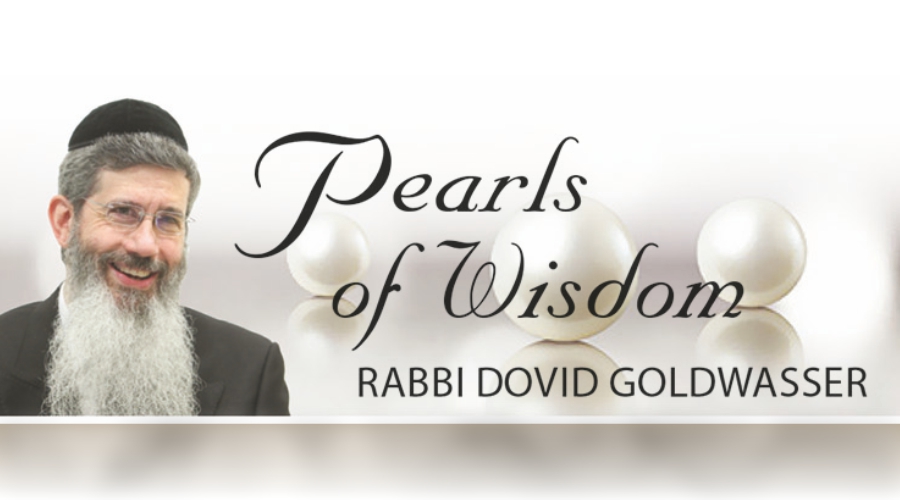“Avraham raised his eyes and saw the place from afar…and Avraham said to his young men: Stay here by yourselves with the donkey, while I and the lad go there” (Bereishis 22:4-5).
What did Avraham Avinu see? He saw a cloud hovering over Har HaMoriah and understood that that was where Hashem wanted him to offer a sacrifice. When he asked Yitzchak whether he saw anything, he said that he did. When Avraham asked the two young men whether they saw anything, they replied in the negative. Avraham then said, “Since the donkey doesn’t see it and you don’t see it, remain here with the donkey.”
‘);
_avp.push({ tagid: article_top_ad_tagid, alias: ‘/’, type: ‘banner’, zid: ThisAdID, pid: 16, onscroll: 0 });
The Talmud (Yevamos 62a) interprets Avraham as saying, “Stay here together with the donkey – you who are comparable to the donkey.”
R’ Yisroel Yaakov Lubchansky, the great mashgiach of the Baranovich Yeshiva, says that these two young men were none other than Eliezer and Yishmael. The Talmud (Yoma 28b) states that Eliezer was an elder at this time who sat in yeshiva and learned. He had mastered the Torah of Avraham and “drew and gave drink to others” from it.
Yishmael, meanwhile, had rectified whatever wrong he had done that caused him to be exiled from his father’s house at the age of 13 and was now a member of Avraham’s household. At the time of the Akeidah, he was 50 years old and was a constant companion of Avraham, accompanying him on his travels and harboring no rancor or animosity toward Avraham for his earlier expulsion.
The Yalkut Shimoni writes that when this group of three was on its way to Har HaMoriah, the Satan transformed himself into a river, and all three had to wade through with the water up to their necks, barely making it. Yet, despite this miracle and despite the righteous nature of Eliezer and Yishmael at this time, the two men did not see the cloud hovering over the mountain; they did not perceive the evident holiness of the place. At that point, they were comparable to a donkey.
Nevertheless, Avraham Avinu chose his words carefully. He didn’t want to say anything disparaging. He merely apprised them that they had not yet reached the madreigah of being able to discern supreme holiness – and they accepted his words. They were neither embarrassed nor upset because they were determined to improve their middos and rectify their shortcomings. There is, in fact, no mention of any negative reaction on their part to Avraham’s statement.
A person is obligated to be aware of his character flaws and imperfections so that he can direct his efforts properly to make amends. We must recognize our status vis-à-vis our peers and the great Torah leaders of the world and strive to attain greatness.
The Talmud (Bava Basra 133b) relates that Rav Ilish erred in a ruling and was embarrassed. Rav read him Yeshayah 60:22, “I, Hashem, will hasten it in its time,” as if to say: It was due to Divine Providence that I was here to correct you before the wrong ruling was followed.
The Rashbam notes that Rav Ilish feared that he had perhaps erred in previous rulings as well. Similarly, notes R’ Lubchansky, Eliezer and Yishmael feared that perhaps they had misunderstood the Torah they heard from Avraham Avinu but he had refrained from reproaching them. Now that he prevented them from accompanying him up to Har HaMoriah, comparing them to the donkey, they were reassured that the efforts they were expending to attain shleimus were approved and encouraged by Avraham Avinu.
To elucidate this point, R’ Lubchansky gives the analogy of one who inspects a room inadequately because it is dimly lit. One day someone brings a powerful searchlight into the room that sheds light on the many faults that were previously missed. So, too, Avraham Avinu brought Hashem’s light to the world, which called attention to all the shortcomings that needed to be addressed.
The great sage, R’ Yehuda Aryeh D’Modena, davened in a small shul near his house, which consisted of only the requisite 10 people for a minyan. He was once approached by a delegation from a distant city with the request to come spend a Shabbos with them. They explained that their shul had hundreds of mispallelim but no one to guide them, and it would be very beneficial for everyone to hear him speak. R’ Yehuda Aryeh was reluctant to travel such a distance, but he ultimately conceded to their request.
That Shabbos, R’ Yehuda Aryeh davened with the congregants and then gave an electrifying hour-long drasha. The audience listened intently and with deep interest, and after Shabbos they requested that he come again. They also presented him with a beautiful gift in appreciation.
The rav came again another Shabbos and spoke again as the audience sat attentively and listened closely. After Shabbos, he was presented with another beautiful gift and another request to return for another Shabbos.
After spending a third Shabbos in the city, the rav was presented with an even more expensive present in appreciation of his wonderful drasha. Again, they requested a return visit, but this time the rav declined. The people were very upset and asked how he could leave an entire city without a leader.
The rav explained, “I looked around and saw that everything has remained the same in your city. Although everyone listened closely to my words, I don’t seem to have made any impact on anyone. Those who profaned the Shabbos continue to do so; those who have not set aside time to learn Torah still have not done so; those who come late to davening on Shabbos still come late. There is no reason for me to continue coming to your shul.
“However,” he said, ”if you take back all your gifts, I will agree to return.”
The people were perplexed by this request. What difference did it make whether or not he was compensated with gifts?
The rav continued, “The mispallelim fear my reproach and wonder whether they will be able to change their ways. They believe that if they inundate me with beautiful gifts, it will be difficult for me to be angry with them. But if I return the gifts, I can say whatever I want. My drasha is then a gift to the congregants, and they may feel more obligated to take my comments to heart.
“The merchant doesn’t get angry when someone purchases an expensive gold watch and then steps on it and breaks it in front of him. He has lost nothing. He pities the buyer for his stupidity. However, if a chassan receives a gold watch from his kallah and then breaks it, he has shamed her. In effect, he has demonstrated that he wants no association with her or her gift.
“When you give me gifts, you don’t feel obligated to accept my words. But if the drasha is a gift, you may be more inclined to heed them.”
‘);
_avp.push({ tagid: article_top_ad_tagid, alias: ‘/’, type: ‘banner’, zid: ThisAdID, pid: 16, onscroll: 25 });




